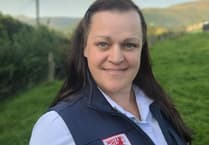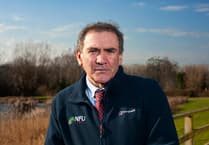Recent months have seen a range of challenges emerge within the farming sector. From the strain of compliance with the latest Agricultural Pollution ‘NVZ’ regulations, to the recent upheaval and uncertainty stemming from UK Government’s changes to inheritance tax. However, for many, both will be dwarfed by the continued impact of Bovine tuberculosis (bTB) on Welsh farmers and their livelihoods.
The devastating disease has cast a long shadow over Welsh farming for decades, meanwhile farmgate frustrations regarding the Welsh Government’s approach have often boiled over - further fueling the farming sectors’ protests earlier this spring.
The scale of the problem facing the sector and Welsh Government in tackling the disease remains substantial - despite huge sacrifices already being imposed on farming businesses.
Earlier this year we were reminded of the magnitude of the challenge, with Welsh Government data recording over 11,000 animals being slaughtered for TB control in the year up to March 2024 - an increase of 16.8% year-on-year. Meanwhile, previous FUW analysis of GB TB statistics show that over the last six years, there has been a mere 0.09% reduction in the number of ‘Not Officially TB Free’ herds in Wales - setting a dismal trajectory for achieving TB freedom.
For Welsh farmers, the financial burden accompanying the disease remains immense - with the strict control measures, testing, and culling a severe disruption to farming operations, reducing productivity, and diminishing farm incomes.
Beyond the economic toll, the emotional and mental health burden on farmers can also be significant. Dealing with the disease can be a deeply distressing experience, with farmers witnessing the suffering of their animals, whilst grappling with the uncertainty of their business and future.
Whilst eradicating bTB remains a massively complex and emotive subject, it’s all too clear that we cannot continue with the status quo.
To this end, the FUW welcomed the opportunity last week to attend the Welsh Government’s first meeting of the Bovine TB Eradication Programme Board in Cardiff. Chaired by Sharon Hammond, a beef, sheep and poultry farmer, the Board brings together expertise and experience from a range of farmers and representatives from both farming unions.
The Programme Board will meet quarterly and provide strategic advice to the Chief Veterinary Officer for Wales and Welsh Ministers. This work will include working alongside the Bovine TB Technical Advisory Group in the New Year to review Wales’s 6-yearly eradication targets.
A productive first meeting was had, with the Deputy First Minister and Cabinet Secretary for Climate Change and Rural Affairs also present. As was the case with the recent discussions over the revised Sustainable Farming Scheme, we have welcomed the opportunity to work collaboratively with both industry and Government to influence and direct change over this crucial issue.
The future of Welsh farming depends on our ability to address the threat of bTB. By working together, we truly hope we can eradicate this devastating disease and secure a brighter future for our cattle. farmers, and our rural communities.




